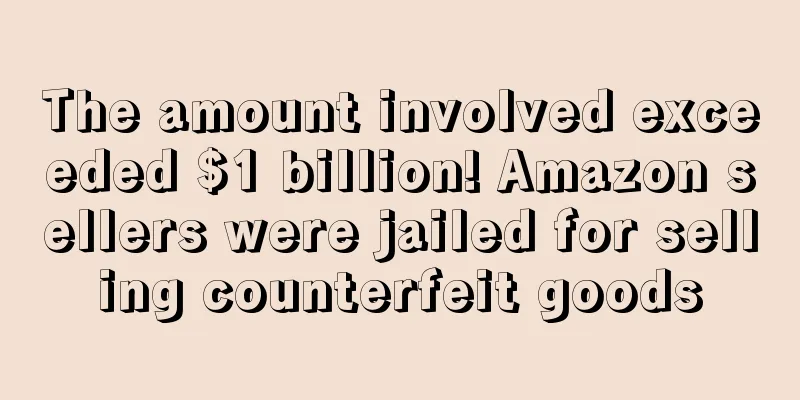Violators will be banned from sale! The "seller version" of the US Consumer Act is released

|
After the INFORM Consumer Act came into effect ( end of June), the U.S. Federal Trade Commission ( FTC ) issued guidance to online platforms, informing them of the obligations they should follow.
Recently, the U.S. Federal Trade Commission ( FTC ) issued guidance for third-party sellers, detailing the impact that the INFORM Consumer Act ( hereinafter referred to as the Act ) may have on sellers' businesses , and once again emphasized the third-party sellers' obligation to comply with the Act. Whether the bill will have an impact on sellers, FCT recommends that sellers judge from three aspects:
1. Does the seller’s sales platform meet the legal definition of “online marketplace”? The bill defines an "online marketplace" as a person or business that operates a consumer-directed platform that allows third-party sellers to engage in the "sale, purchase, payment, storage, transportation, or delivery of consumer goods" in the U.S. Many of the companies that meet the definition of an "online marketplace" are nationally recognized businesses, but smaller platforms may also be covered.
2. Do the products sold by the seller meet the legal definition of "consumer goods"? The act defines "consumer product" to include "tangible personal property offered for sale and customarily used for personal, family, or household purposes."
3. Does the seller meet the definition of a "high-volume third-party seller"? The bill defines "high-volume third-party sellers" as online marketplace sellers that do not operate online marketplaces and have made 200 or more separate sales or transactions of new or unused consumer goods in any consecutive 12 months in the past 24 months, with total revenue reaching or exceeding $5,000. When calculating the number of sales or total revenue amount for the "high-volume" threshold on a specific online marketplace, only sales made through this online marketplace and paid by the online marketplace directly or through its payment processor are counted. In addition, the bill clearly stipulates that businesses that have a contractual relationship with the platform can be exempted from liability.
This means that if the seller meets the above conditions and does not meet all the factors required for exemption, then the Act will have an impact on the seller. It should be noted that the platform can implement collection, verification and disclosure measures that exceed the requirements of the Act. In the words of the FTC, the Act only stipulates the lower limit of the measures that the platform must take, not the upper limit.
In addition, the guidelines also emphasize the timeliness of third-party seller information. Sellers need to electronically prove at least once a year that their information has not changed or that they have updated their information to the platform.
Online platforms that fail to comply may face civil penalties of $50,120 per violation, and sellers who fail to provide the platform with the required information within 10 days, or fail to respond to the platform's request for updated information within 10 days, will have their sales activities suspended. USA Consumer Law FTC |
<<: Amazon officially shuts down its Small and Light program today
Recommend
A cross-border e-commerce platform encountered an incident: a large number of Chinese sellers’ accounts were blocked, involving funds exceeding 60 million
Recently, a large number of cross-border sellers ...
The latest news on German packaging law: environmentally friendly logos do not need to be printed on outer packaging!
Since the release of the latest revised version o...
Japan's state of emergency will be extended until June 20!
According to Japan's NHK TV, the Japanese gov...
What is Hotwire? Hotwire Review, Features
Hotwire was one of the first online travel sites t...
Indonesian e-commerce service company Jet Commerce to enter Malaysia
Oliver Yang, the company's founder and CEO , ...
What is TinEye? TinEye Review, Features
TinEye is a reverse image search engine that uses ...
What is Dingbang Supply Chain? Dingbang Supply Chain Review, Features
Dingbang Supply Chain is headquartered in Shenzhen...
What is BORAAKSU? BORAAKSU Review, Features
BORAAKSU is a fashion brand of the same name foun...
Germany's About You grows by 60% and may go public
According to foreign media Business Insider and G...
Oxygen concentrator exports are booming, and some companies have suspended accepting orders
In recent times, the topic that often dominates h...
European ports hold 48-hour strike, China's foreign minister calls on the US to lift tariffs and sanctions
Strike at major European ports may lead to berthi...
Amazon recalls tens of thousands of mattresses due to self-operated brands
Product recalls are not uncommon, and many of the...
73 interview invitations were sent out to 3 people, and the operational anxiety soared under the account ban!
A large number of Amazon sellers’ brands have bee...
What is Shopee Logistics Service (SLS)? Shopee Logistics Service (SLS) Review, Features
Shopee Logistics Service (SLS) is Shopee’s self-bu...
What is Klaviyo? Klaviyo Review, Features
Klaviyo is a one-stop digital marketing tool that ...









